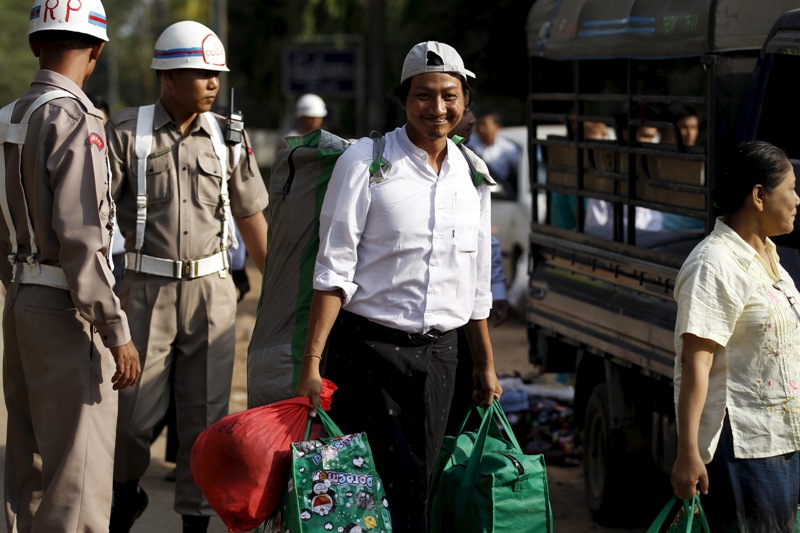The International Press Institute (IPI) today welcomed Myanmar President Htin Kyaw’s pardon of some 83 political prisoners, including four journalists and a media CEO imprisoned since 2014 over news reports on an alleged secret military chemical weapons factory.
The pardon, signed by the president on Saturday, came just weeks after the new government of Aung San Suu Kyi’s National League for Democracy (NLD) party took office and was aimed at “national reconciliation and peace of mind” in connection with Myanmar’s traditional New Year celebrations, reports said.
Those pardoned on Saturday and released included weekly Unity chief executive Tin Hsan and journalists U Lu Maw Naing (aka) Lin Kyaw Oo (aka) Lu Maw; U Sithu Soe; U The Yazar Oo (aka) Yazar Oo (aka) Ko The; and U Aung Thura (aka) Paing Thet Kyaw.
The five were sentenced to 10 years imprisonment with hard labour in July 2014. Human rights and free expression watchdogs, including IPI, widely condemned the sentence, which was reduced to seven years behind bars in October 2014.
“We are pleased that those imprisoned in the Unity case have been freed, and by the broader release of political prisoners, a necessary step forward in Myanmar’s democratic transition,” IPI Director of Advocacy and Communications Steven M. Ellis said. “We urge the new government to carry this momentum forward by strengthening Myanmar’s Constitution and laws to ensure that in the future no one will be imprisoned simply for exercising a fundamental human right.”
The charges in the Unity case stemmed from a January 2014 report in which factory workers were quoted as saying that chemical weapons were being produced at a factory located on 3,000 acres of land in Pauk, a town in Myanmar’s largest region of Magway. The convictions were viewed as a major blow to reforms promised by then-President Thein Sein, who took office in March 2011, announcing sweeping changes to press laws in Myanmar.
Myanmar’s new NLD government has vowed to release all political prisoners jailed by the country’s former military rulers. Since taking office on April 1, the new government has released or dropped charges against scores of prisoners accused of political crimes and no journalists are currently imprisoned following Saturday’s release.
However, dozens of political prisoners reportedly remain in prison and hundreds of others still face charges brought under the previous government.
